In a recent poll conducted in Germany, 71 percent of German citizens consider the delay in forming a coalition government incomprehensible, while about 28 percent have considered the process normal. A simple analysis of this survey shows that even a large number of supporters of the Christian Democrats, Social Democrats and Christian Socialists consider the current process unacceptable.
Most German citizens surveyed believe that the delay has disturbed the country’s internal affairs and reduced Germany's influence in the European Union. Certainly, over the coming years, we're going to witness increasing concern over this issue, even if a coalition government is finally formed. And if that is the case, the next government may no longer have the power to lead the European Union and the Eurozone given domestic challenges.
The poll results indicate that a "coalition government" doesn't necessarily mean the end of the challenges for Merkel either domestically or in the European Union. On the contrary, it will exacerbate further concerns. During the last three years, German citizens have witnessed Merkel’s strong maneuvers within the EU and the Eurozone. During this time, Germany played a major role as the EU's primary economic power.
The imposition of Merkel's austerity policies on other European countries was what led to dissatisfaction among European citizens. What is clear is that Merkel can't go on like this, because the sharp fall of the Christian Democrats’ vote count in the recent election was a clear indication of the decrease in the popularity of the country's Chancellor. Some Christian Democrats were opposed to Merkel's candidacy in recent elections, because they believed Merkel had to step down by the end of her third term. They thought Merkel as an influential person might have continued with political activities in the Christian Democrat Party and in Germany, however. But Merkel has been determined to save position and not to everyone’s satisfaction.
Leaders of the German Liberal Democratic Party have repeatedly criticized the ruling political approach. Wolfgang Kubicki, the vice chairman of the Free Democratic Party, has emphasized that there will be no Grand Coalition (the coalition of Social-Democratic Union and the Christian-Parties Alliance) in Germany. He believes that the leaders of the Christian Democratic Union, the Social Democratic Union and Christian Socialists are merely fighting for their own political survival. The leaders of the Liberal Democratic Union believe that in case of the defeat of the coalition negotiation between the Christian parties and the Social Democratic Party, there should be another election, and then again, negotiations on the formation of the Jamaica coalition will begin. Also, the leaders of the German Liberal Democratic Party have repeatedly warned the Social Democrats not get engaged in negotiations with Merkel and the Christian Democrats, because the alliance of the Christian parties don't keep their word.
Angela Merkel blames leaders of the Liberal Democratic Party and Christian Lindner for the political turmoil in Germany. After Germany's general election, many German analysts argued that the Jamaica Coalition would eventually be formed (between Christian Democrats, Christian Socialists, Green and Liberal Democrats). However, Christian Lindner finally left the negotiating table for what he called "the lack of commitment of Christian parties", and thus the Jamaica Coalition wasn't formed. After that, Merkel began negotiations with the Social Democrats (their traditional rival) to form the Grand Coalition. Obviously, even if the Grand Coalition is formed, the Liberal Democrats will continue to oppose Merkel as the chancellor.
Christian Lindner has explicitly stated that if the Grand Coalition is not formed and if the elections were to be held again in Germany, he won't easily negotiate with the Christian Democrats for the second time. Lindner's precondition is Merkel's resignation of her post. Lindner said that only in this case would it be possible to re-negotiate with the alliance of Christian parties over the formation of the Jamaica Coalition. In any case, the Liberal Democrats are considered one of the main foundations of the Jamaica Coalition and a coalition government won't be formed if they refuse to attend this gathering.
Accordingly, the German Chancellor Angela Merkel is frustrated with Christian Lindner and the Liberal Democrats. She blames Lindner for the current political deadlock in Germany. On the other hand, Lindner's insistence on Merkel’s resignation has angered her. It should be noted that not long ago, Liberal Democrats were considered the political allies of Merkel and the Christian Democratic Union. But now the Liberal Democratic Union and its leaders are serving as catalysts for Angela Merkel's defeat in the German political scene, and subsequently, her defeat in the European Union and the Eurozone.
MNA/TT 421049

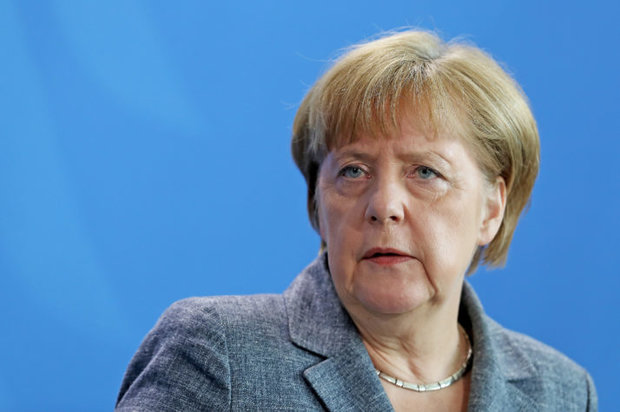

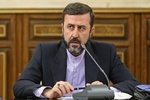
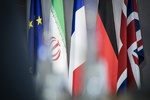
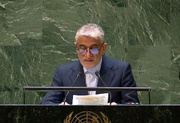


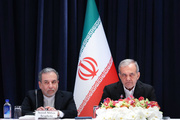










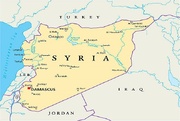

Your Comment